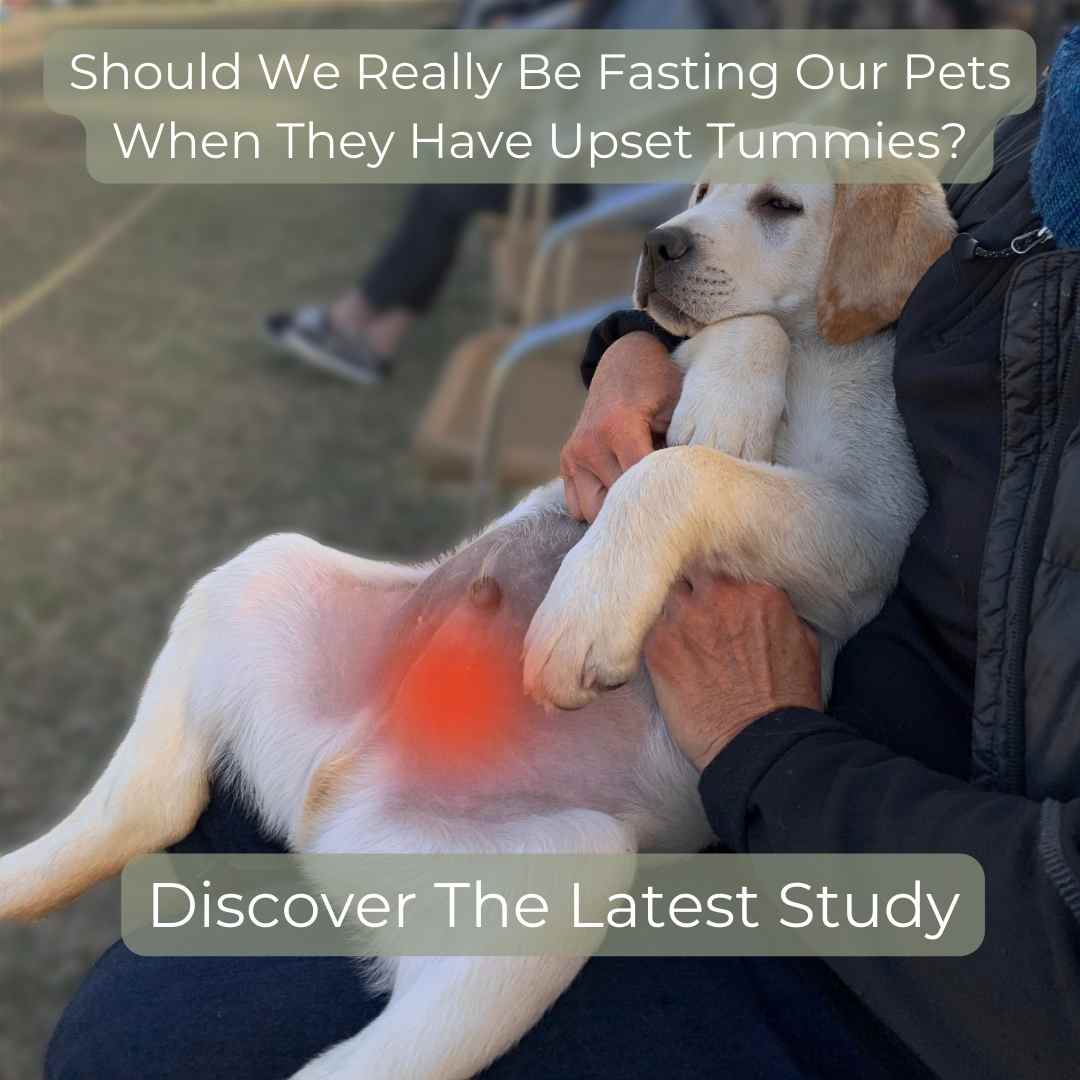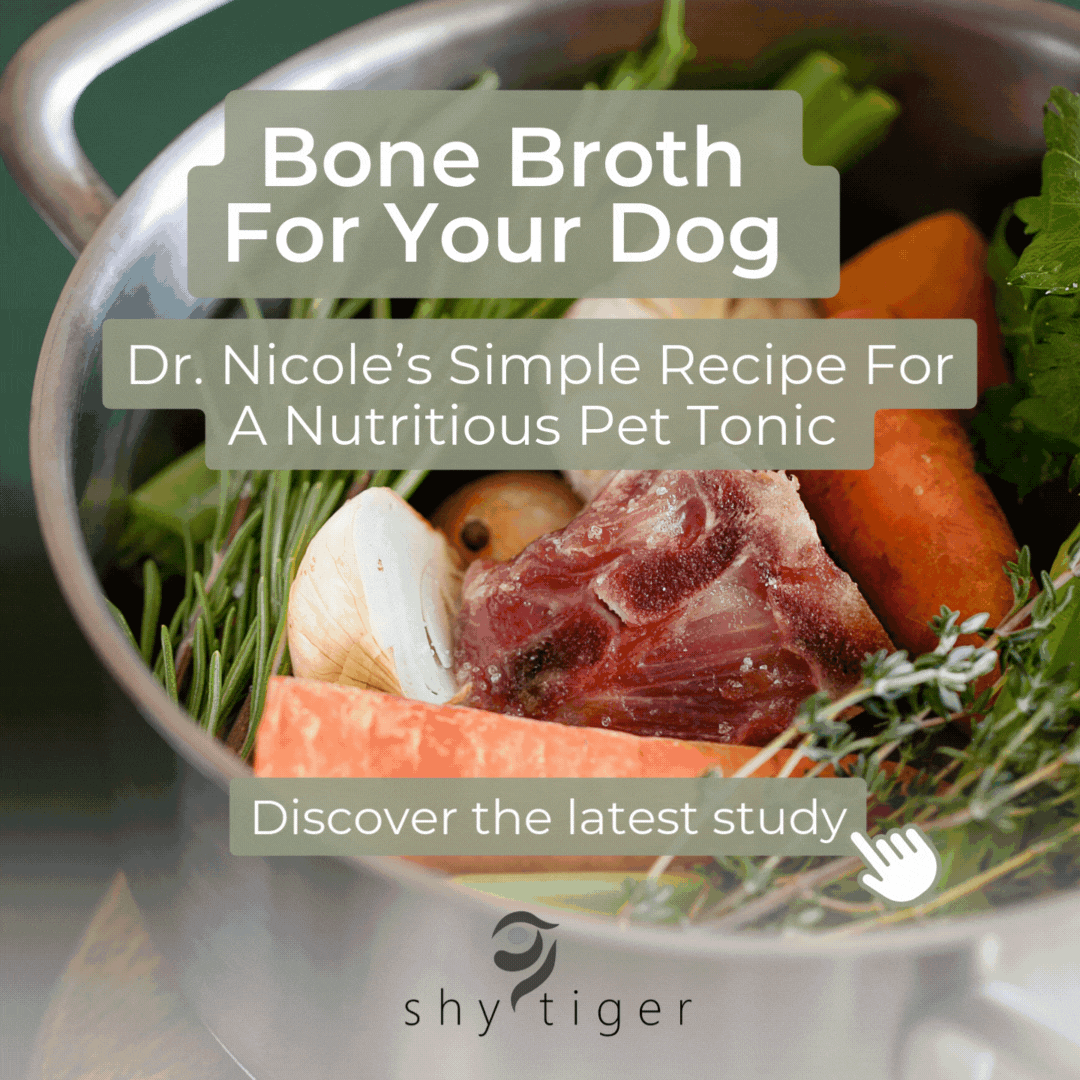Should We Fast Pets with Upset Tummies?

As a dedicated veterinarian, my commitment to integrated health is unwavering. I recognise the vital role that scientific research plays in animal health. Today, I want to delve into a topic that has been the subject of much debate and research: should we fast or feed our pets when they have upset tummies? Traditionally, vets have always recommended fasting your pet if they have vomiting or diarrhoea, to 'rest' the gut. Interestingly, research is now suggesting the gut may heal faster if we feed (appropriately). Let's go through a research article on the topic: the role of early enteral nutrition (EEN) in the management of dogs with severe parvoviral enteritis.
The Study: A Brief Overview
The study I'm referring to investigated the effect of early enteral nutrition (i.e. feeding) on intestinal permeability, intestinal protein loss, and clinical outcomes in dogs with severe parvoviral enteritis. Parvovirus is a terrible viral infection that causes severe disease and is one of the diseases we vaccinate against. The research was a randomised, controlled clinical trial involving 30 dogs. One group received no food until vomiting had ceased for 12 hours (NPO group), while the other group received early enteral nutrition via a nasoesophageal tube from 12 hours after admission (EEN group). Read the full study here.
Key Findings
Clinical Improvement
The EEN group showed earlier clinical improvement in terms of demeanor, appetite, vomiting, and diarrhea. The median time to normalization for these variables was one day shorter in the EEN group compared to the NPO group.
Weight Gain
The EEN group exhibited significant weight gain, whereas the weight increase in the NPO group was not significant. This is crucial as weight loss can be a severe issue in dogs suffering from parvoviral enteritis.
Intestinal Permeability
The study assessed intestinal permeability through urinary lactulose and rhamnose recoveries. Ignore the fine detail, but the take-home message is the EEN group showed a decrease in percent lactulose recovery, suggesting improved gut barrier function.
Survival Rate
Thirteen out of fifteen dogs in the NPO group survived, while all fifteen dogs in the EEN group survived. Although not statistically significant, this still points towards the potential benefits of early enteral nutrition.
What Does This Mean for Your Dog?
The findings of this study are promising and suggest that early enteral nutrition could be beneficial in managing gastroenteritis in dogs. However, it's crucial to consult your veterinarian for a tailored treatment plan that suits your pet's specific needs as there is never a one-size-fits-all approach.
A Word of Caution
As with any medical intervention, it's essential to proceed with caution. Always consult your veterinarian before making any changes to your pet's diet or treatment plan, especially when dealing with severe conditions like parvoviral enteritis.
Conclusion
The study brings to light the potential advantages of early enteral nutrition in the management of severe gastroenteritis in dogs. While more research is needed, the findings are encouraging and could pave the way for improved treatment protocols.
As always, if you have any concerns or questions about your pet's health, please reach out. We're here to help your pets live their best, happiest, and healthiest lives.
Disclaimer: The information provided in this article is based on scientific research and should not replace professional veterinary advice. Always consult your veterinarian for diagnosis and treatment plans tailored to your pet's specific needs.
References:
Previous Articles:




Leave a comment